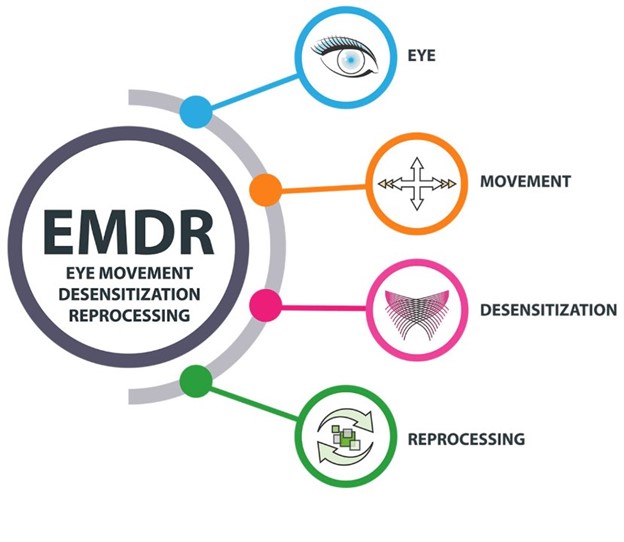
EMDR therapy has helped many of my clients over the years. My clients have reported that they found it to be a useful therapeutic tool. It has helped relieve many types of psychological stress such as sadness, anxiety, negative thinking patterns, psychosomatic issues, and symptoms related to PTSD, anxiety, and phobias.
Dr. Francine Shapiro developed EMDR in 1987 to alleviate the emotional, behavioral and physiological distress associated with traumatic memories. The mind can often heal itself naturally in the same way that the body does. Much of this natural coping mechanism occurs during sleep, particularly during rapid eye movement (REM) sleep. In developing EMDR, Dr. Shapiro utilized this natural process.
Eye Movement Desensitization and Reprocessing is an interactive psychotherapy approach that has been extensively researched and proven effective for the treatment of trauma, such as issues of abuse, bullying, domestic violence, grief/loss and many other complex life issues. EMDR can be used to target early unprocessed childhood traumatic experiences and memories, later trauma or current situations for positive therapeutic effect.
There is an inherent information processing system in the brain that gets blocked when traumatic or adverse events occur, causing these events to get locked in the brain with the original picture, sounds, thoughts, feels and body sensations. Therefore, whenever a reminder of the traumatic or adverse event is triggered, those pictures, thoughts, feelings and sensations continue to be evoked. EMDR therapy works on helping the brain reprocess these traumatic memories, and as a result, affective distress is relieved, negative beliefs are reframed into those that are more positive, and physiological symptoms associated with the target memory are alleviated.
The processing of a target includes the use of dual stimulation (eye movements, taps, tones) while the client concentrates on various aspects of the disturbing event. The amount of time to complete EMDR treatment depends on the each individual’s history.
For additional information about EMDR, please visit www.emdr.com
Please contact Jori Risk, LCSW, if you have further questions or are interested in trying EMDR.
